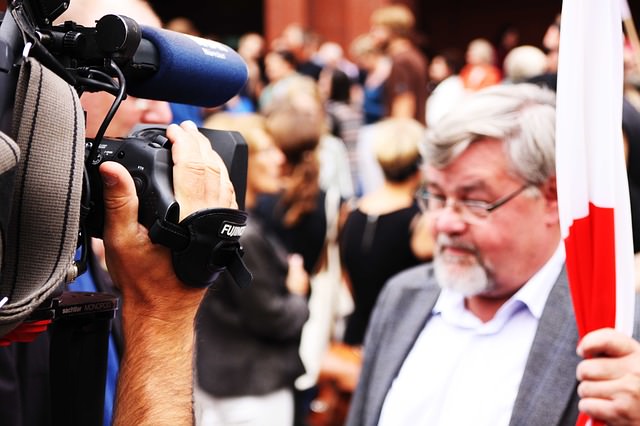Getting people to talk about something on camera is an unusual mission.
It can be a challenge to get someone not used to being on camera to be concise, clear and comfortable in the delivery of their answers to a range of vast questions.
The big thing in any on-camera interview is you don’t want their responses to be a simple yes or no. You need more depth. But how or what do you ask to elicit more fulsome answers?
Here are a few tips I regularly come back to when I need to refresh my interviewing process.
1. Who will watch your video?
Before I do anything, I need to know who will watch this video and figure out what it is they want to know or get from the video. When you know whom your audience is, you’re able to make your video a lot more personal. You can get into their headspace and actually give your audience a greater understanding of your product or company.
I often take about five minutes to answer the following questions when I need to remind myself whom I actually want to be watching this video. Remember, you’re not making a viral video; you’re trying to reach out to a particular audience.
- Who is this audience?
- How old are they?
- Where do they live?
- What type of income/profession do they have?
- What do they do in their free time? (potential hobbies)
- What do they spend their money on?
- What appeals to them, or scares them, or excites them?
- Why do they need to know about this particular product or corporate video?
- How will this video add to their lives? (I know that sounds deep, but without a sense of meaning or importance in a video it can run the risk of being just another video.)
You don’t have to answer all the questions; it’s just a little exercise to get you connected to your audience. It helps me with the next step.
2. Prepare your questions beforehand
Your mission is to find out the answers to the questions the audience/viewers want to know.
Since you don’t want yes or no answers, you need to take a bit of time to write your questions.
My rough guide is that for a two-minute video, it’s best to try to only ask six to eight questions. And always make sure you cover the important points: WHO – WHAT – WHERE – WHEN – HOW.
Here’s what I think about before I write my questions:
- What are the goals/strategy I want the video to accomplish?
- What is it that the audience needs to know?
- Do they need to know facts or understand how hard a particular process is/was?
Then I ask open questions:
- Tell me about this product/organisation?
- What is it that you’re offering?
- Why is this XYZ important?
- How long did the process take?
- What was the process like before XYZ happened?
- How is this product/company different from what’s already on the market?
FURTHER READING: How to appear comfortable on camera or in an interview
3. Don’t be afraid to ask your question again
Once you’re ready to start the interview, remember that in order for the video to be punchy and on point it needs to include sound bites, not waffle.
It can be a tricky task trying to get the concise answer from an interview, which is why I try to keep a clear idea firmly in my mind of what I want the video to be. I often sum it up in a sentence and write it down and glance at it before the interview.
FURTHER READING: Media Training 101: How to survive a tough interview
Sometimes, I’ll have mock answers to the questions I ask just so the interview stays on track. Don’t be too locked into this as organic responses are the best, but sometimes I feed part of the mock answer to my interviewee in an attempt to help them with their delivery.
If their answer is too long, be brave and ask them the question again. Remember you don’t want a long response – 10 to 13 seconds is roughly all you will need. Especially if that video is only two minutes long and includes three interviews.
Lastly, every interview is different. Some will be easy; others will be like pulling teeth. Some people are great on camera; others need a little more encouragement. Sometimes your plan falls by the wayside; that’s the beauty of filming. If your interview falls off the wagon, take a few deep breaths and keep going.
You got this!
If you’re looking for an expertly produced corporate video, get in touch with the team at Lush. Or if you’d like help performing better on camera, read more about our media training.
